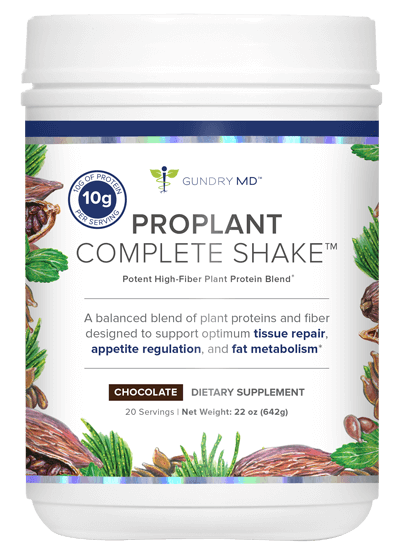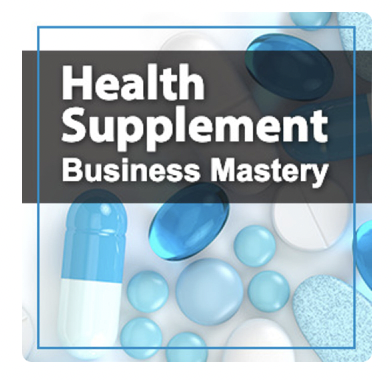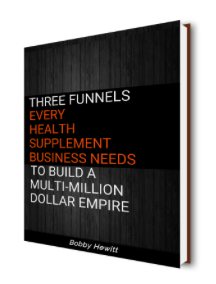
Direct response marketing is one of the most effective strategies for selling dietary supplements online.
This is largely due to the way it creates an immediate response to buy from a brand new visitor.
This method enables brands to quickly learn if their marketing has the potential to deliver enough return on ad spend to scale or scrap the campaign.
One key reason why this type of direct to consumer marketing strategy works is due to the power of the hook.
What is a Marketing Hook?
A marketing hook grabs the prospects attention. It “hooks” them into wanting to know more.
That’s the entire job of the hook.
It’s NOT a one-liner or an elevator pitch.
It’s NOT the headline.
It’s purpose is NOT to sell… Nor is it to intensify the problem.
And it does NOT start and end with simply grabbing interest and attention.
The hook is where your marketing BIG IDEA lives.
Your headline and marketing lead copy, (the first 700 words or so), hang off of the hook that drives direct response selling.
When it comes to dietary supplements, the big idea and hook combination drives all of your direct response marketing.
It’s the difference between a successful direct response marketing campaign and one that’s on life support.
Let’s take a deeper look at the core concept of the hook and big idea in direct response marketing.
The Marketing BIG IDEA
The BIG IDEA grabs your prospects attention.
It needs to be:
- New in your marketplace (No other competitors should be talking about it in their marketing.)
- Unique to your product (Typically tied to your products unique mechanism of action.)
- Compelling (In order to amplify the desire within your prospect to want to know more.)
To learn more about marketing BIG IDEAS, click here.
The Marketing Hook
The marketing hook pulls your prospect into your marketing.
The hook, is the enticing sound bite that’s used everywhere. The headline, the sales copy, the advertisements, etc.
In contrast, the BIG IDEA permeates through your sales letter, yet it may never be explicitly stated directly anywhere.
Let’s look a both the big idea and the marketing hook from a well known dietary supplement direct response marketer, Dr. Gundry.
Dr. Gundry, is known in the direct response health space for his captivating Video Sales Letters (VSLs).
A VSL is a direct response sales letter in video format. It’s a sales focused video, meant to both educate and pitch an offer.
They are typically 30 – 60 minutes long.
Yes, people do watch them, even though they are very long.
The misinformation out there about our attention spans getting shorter is simply not true in a world where it’s common to binge watch an entire season on Netflix in one sitting.
In fact VSLs convert very well, partly due to their length.
They are designed to capture the interest of a very narrow target audience.
But let’s get back to Dr. Gundry’s big idea and hook.
First you’ll need to understand the product.
Proplant Complete Shake. It consists of a high fiber plant protein blend.

That is targeted to the weight loss market.
The target market is important because it adds context to the marketing hook and big idea we’re about to unpack.
If the product were targeted to a different market then the big idea and marketing hook would dramatically change.
Now we’re ready to break them both down.
First, Here’s The BIG IDEA:
The reason why you struggle with losing weight is because you’re eating something that you thought was good for losing weight. But it’s not.
The big idea never needs to be explicitly stated. You won’t necessarily see this stated as it is above in the sales copy anywhere. This is the essence of the idea expressed clearly.
The entire sales copy and ad copy will come back to this one core idea again and again.
If we stray from this one idea, it needs to be cut out. If we introduce any other idea, it needs to be removed.
This is our guiding light going forward, and what the marketing hook hangs on.
Now, Here’s The Marketing Hook:
The right protein can help you lose weight, but the wrong one can destroy your health.
The marketing hook doesn’t answer the question of the big idea… “How is the wrong thing I’m eating making me gain weight?:
Or even the implied question of the big idea… “What should I eat?”
Instead it opens up a series of questions-
What is the right protein?
Which are the wrong ones?
How do the wrong proteins destroy my health and keep me from losing weight?
How do the right proteins help me lose weight?
I thought all proteins were the same.
That last one goes against the belief that…
If you eat protein instead of carbs then you’ll keep the weight off.
This against the grain stance is one of the key factors that make a good marketing hook.
Let’s Break Down This Hook.
It activates a few emotions all at once.
First, it has curiosity built right in.
You want to know which is the RIGHT protein.
After all, the common thinking is that protein helps you lose weight.
Carbs are bad not protein. RIGHT? (You’re not quite sure anymore after reading this hook.)
So the marketing hook makes you question the belief that protein was ever good for losing weight in the first place.
That dissonance created in your mind needs to be rectified by watching the VSL.
In addition, it activates a bit of fear and worry.
Could you be eating the WRONG protein? Is that be the reason why it’s been difficult for you to lose weight?
By adding specificity (of a specific type of protein) to the existing belief, that all protein is good for losing weight, it divides protein into two groups, good and bad.
The concept of there being a good and bad side of things already exists in many aspects of health.
There’s a “good cholesterol” HDL (high-density lipoprotein), and a “bad cholesterol” LDL (low-density lipoprotein).
But this is unique when it comes to protein.
It’s also new to the weight loss marketplace. No other competitors are talking about it for weight loss.
It’s also unique to the product.
The unique mechanism of action that allows you to lose weight is the specific type of plant protein found in the Proplant Complete Shake.
And finally, it’s very compelling. Tapping into the Desire to want to know more through fear that you might be eating the wrong things. As well as the pulling force of Hope, that this specific type of plant protein is the reason why other diet shakes have not worked for you in the past and the implied reason why this one will work for you.
These dual forces of Desire and Hope are two of the forces that make up the health buyer decision framework we use to optimize dietary supplement companies revenue through A/B testing.
To learn more about my unique process, click here.
Discover the 3 funnels that can help your health supplement business succeed.

Listen to the Health Supplement Business Mastery Podcast for for dietary supplement entrepreneurs and marketers.



